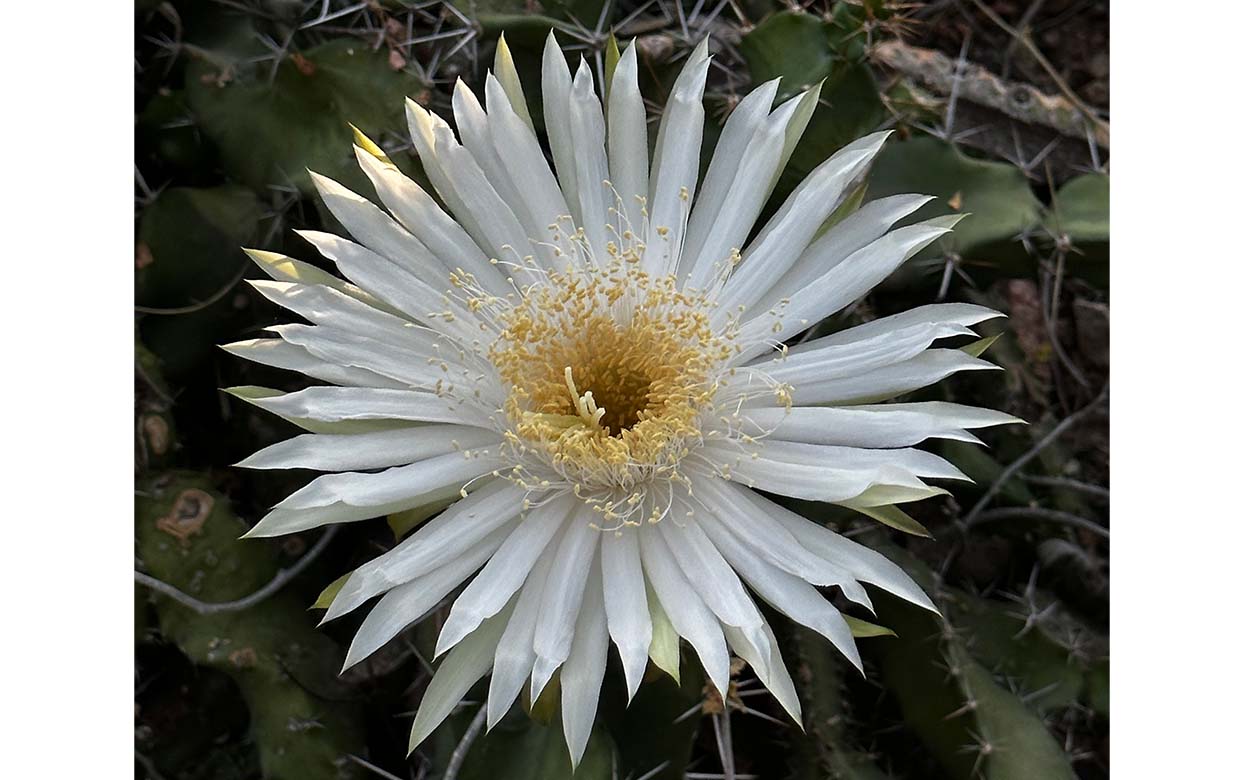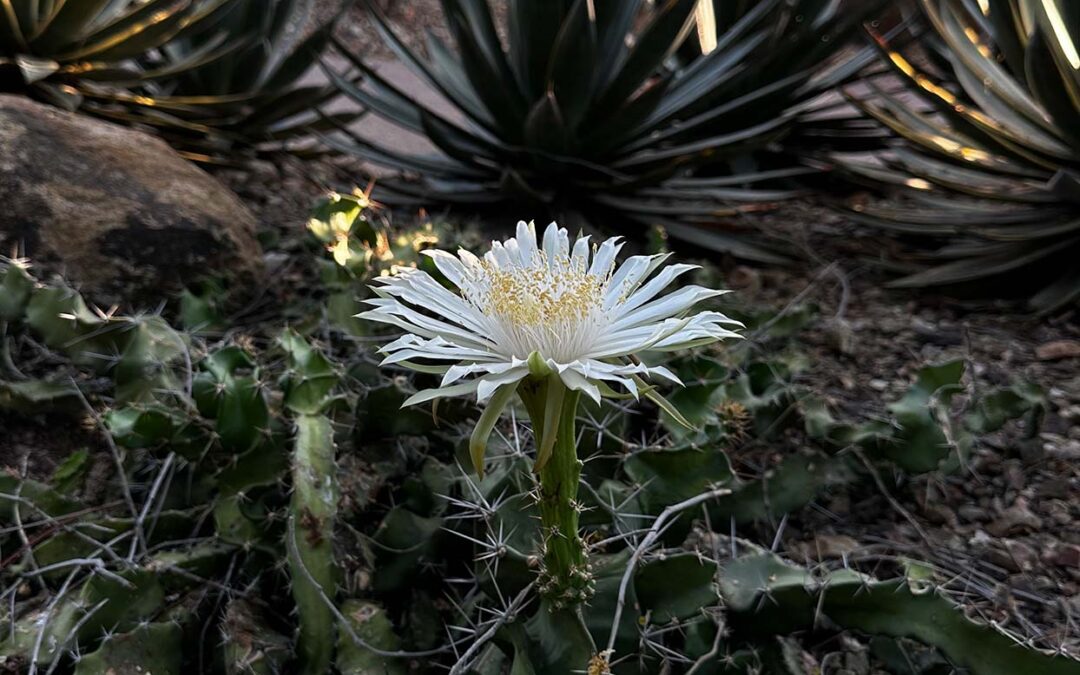Did you know out of the 4,400-plant species in the Garden collection 16 hail from Colombia and one is actually from Gertrude Webster’s personal collection. Learn more about five Colombian cactus at the Garden.
Intertwined and nestled on the ironwood tree in the Lewis Ironwood Courtyard, you’ll find Acanthocereus tetragonus. This stunning succulent with green stems that can reach up to ten feet is sometimes called the triangle cactus for the shape of the stems in cross section. The stems and fruits are edible.

In the Sybil B. Harrington Cactus Gallery, check out Cereus repandus, also known as the apple cactus. It is a tree-like, branching cactus which can grow up to 40-feet tall and 15-feet wide. From late spring to early fall, bold red-tipped white flowers bloom during the night. Its fruits are used for food, and its wood for furniture, living fences or used in carbon farming.
Opuntia elatior was added to the Garden’s collection in 1968. It’s known as the red-flowered prickly pear and native to Colombia and Venezuela. This plant can grow up to 8-feet tall and is can be spotted along the northside of the cross-cut path.
Pilosocereus Ianuginosus commonly known as the tree cactus, grows 10–40 feet but also can be kept as a houseplant. It doesn’t like to be cold, since it comes from a tropical environment. It blooms in the summer with white-yellow flowers. Snap a pic of these at the Cactus Gallery.
Located in the Cactus Gallery, as well as the southeast end of the Desert Discovery Loop trail, Stenocereus griseus, also known as the Mexican organ pipe, is a tree-like cactus that produces fruits that are a resource for bats, birds and other animals. It is native to the Guajira Peninsula of Colombia and the ABC islands.
